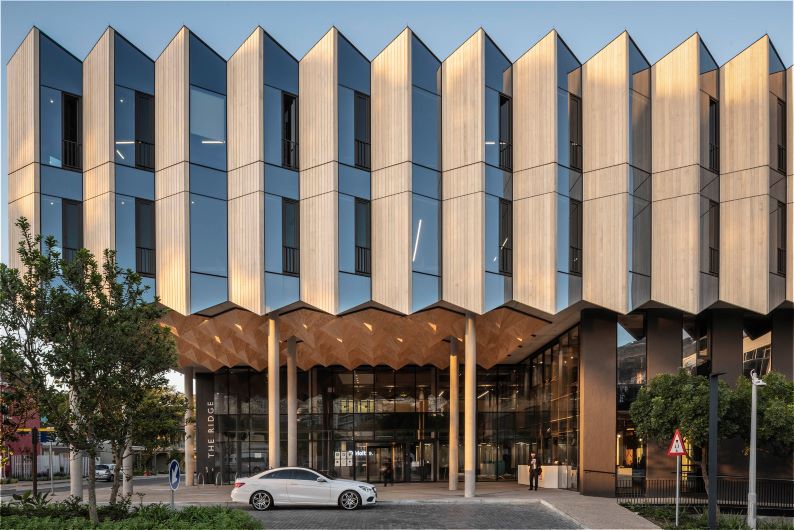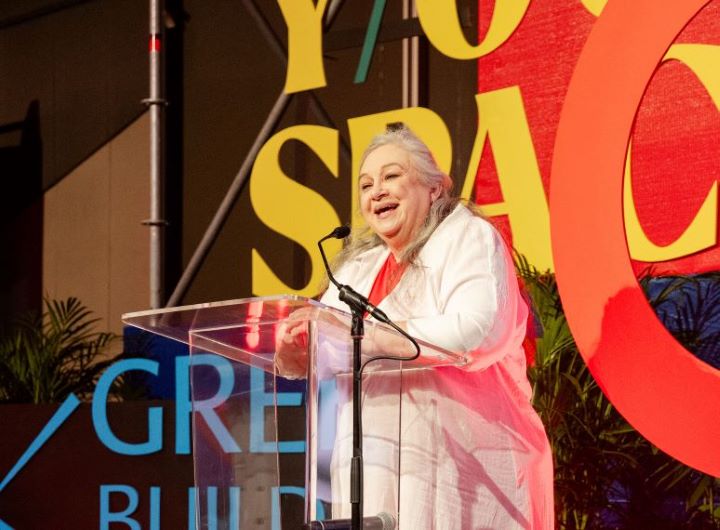
Green Building Council South Africa (GBCSA) hosted the 16th Green Building Convention late last year – a gathering of like-minded role players in sustainability in the built environment, attracting over 800 delegates, more than 40 exhibitors and 100 speakers. Over 120 companies are engaged during the Convention, recognising innovative solutions and sharing trusted best practices.
The theme for the convention was SPACE, emphasising the need to create space for robust discussion and the celebration of victories while identifying key actions needed to achieve a positive impact. The Convention is a space to define the built environment as a force for change, and through rethinking space, buildings and places are brought to life to achieve necessary transformation.
Lisa Reynolds, the CEO of GBCSA, says: “Our vision is to be a vital part of the transformation of the built environment to a place where people and the planet thrive. The global goal is to halve carbon emissions by 2050. To achieve both of these goals, and if South Africa is going to mitigate climate change, we need to ramp up our efforts, and that is going to require exponential ‘green thinking’.”
UN Secretary-General António Guterres clearly expressed the level of crisis we face at last year’s COP27: “Our planet is still in the emergency room and humanity is on a highway to climate hell.”
The built environment generates around 40% of annual global CO2 emissions. Transformation is non-negotiable to divert us from a “climate hell”. GBCSA recently reached the significant milestone of its 1000th certification, a milestone that reflects both the enormous strides taken towards shifting the paradigm in the built environment, and the long road ahead. It is encouraging to note that the first 50 certifications took place during the first eight years of GBCSA’s history, and exponential growth of certifications happened over the following eight years.
Reynolds says: “We’ve made good progress, but there’s also a call to action. The next thousand certifications await, and with them, a more sustainable future for South Africa’s built environment sector. Certifications are a tool of means and measurement to assist us to achieve a greener and resource-efficient future”.
Lead Sponsors for the event were Nedbank and Rand Water, both committed to a vision of fostering the planet’s health. Mbuyiswa Makhubela, General Manager Corporate Services for Rand Water says: “Our commitment to environmental sustainability is driven by the need to ensure that the organisation’s entire operations remain viable whilst having a positive impact on the environment, employees and customers, for present and future scenarios. Rand Water is steadfast in its journey to improve its environmental sustainability on many fronts, including its support of green buildings. GBCSA’s objective of sustainable use of resources fits in nicely with Rand Water’s position on responsible use of water and supports our Water Wise mission, hence the partnership.’
Genevieve Naidoo, Divisional Executive for Property Finance PM, Valuations and Sustainability Nedbank CIB, says: “This event is a natural extension of the long-standing relationship that we have with the Green Building Council of South Africa. Our organisations share a very similar vision for the future of South Africa’s built environment, and the role it can, and must, play in the success of the country’s Just Transition imperative.”
The exciting programme includes keynote speaker Robert Swan, Founder of the 2041 Foundation, renowned polar explorer and energy innovation leader. Graham Hill, Founder of The Carbonauts interview, will present virtually with Lloyd Alter on ‘Transforming Space,’ and Dr Sara Candiracci, Associate Director at Arup, will present ‘Creating Inclusive Places that Value People and the Planet.’
More news
- PART 2: CONCRETE IN THE DESIGN OF A UNIQUE LUXURY HOME IN GEORGE, SOUTH AFRICA
- PART 1: CONCRETE IN THE DESIGN OF A UNIQUE LUXURY HOME IN GEORGE, SOUTH AFRICA
- MVULE GARDENS, AFRICA’S LARGEST 3D-PRINTED AFFORDABLE HOUSING PROJECT
- PART 3: HARNESSING THE POTENTIAL OF HIGH SULPHUR FLY ASH IN CONCRETE PRODUCTION
- PART 2: HARNESSING THE POTENTIAL OF HIGH SULPHUR FLY ASH IN CONCRETE PRODUCTION




